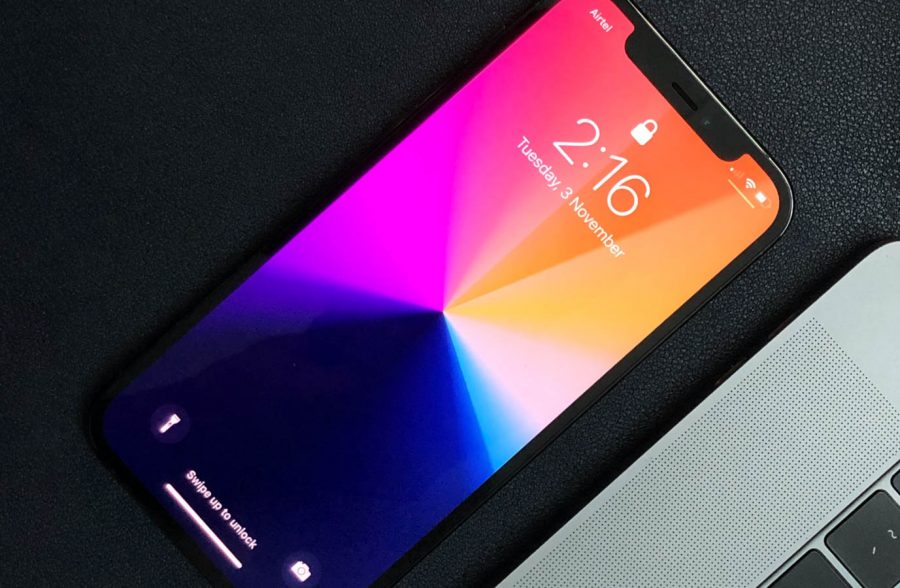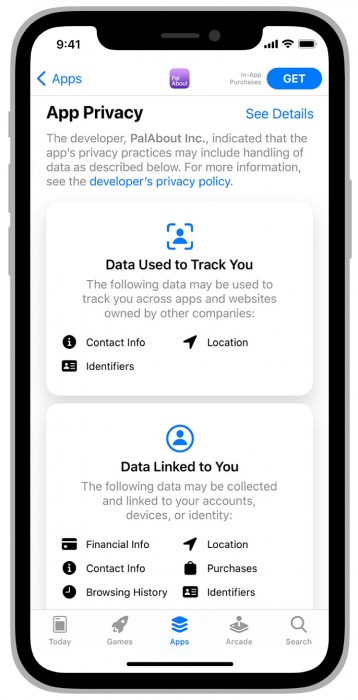Once your iOS app is complete, there’s one last hurdle to get through. The app needs to be submitted to the App Store and an Apple employee will review it. Yep, a real person.
If your iOS app violates any of the App Store Review Guidelines, you’ll receive a rejection email from Apple explaining why your app was rejected and giving you a chance to resolve the issues.
The best time to prevent your app from being rejected by the App Store is before development even starts. This means understanding why Apple rejects apps, what they expect from publishers like you and what not to do.
If you’ve hired Big Fish for iOS app development, we’re with you every step of the way. If we know that your vision for the app, or a feature of the app, violates a guideline, we’ll let you know upfront before time is spent designing and developing it. And if your app winds up rejected for some reason we’ll help you fix it.
Fortunately the solution is usually straight-forward, so there is no need to panic if you receive the dreaded “This app has been rejected” email.
This list of reasons why your iOS app was rejected by the App Store is current as of the publish date on this article. Please be aware that the App Store Review Guidelines is a living document that changes over time.
9 Reasons Why Apple Rejects Apps
1. Your App Has Bugs and the App Store Reviewer Finds One
Your app should be free of bugs and crashes before you submit it to the App Store.
The reviewer may not take a deep dive into your app’s functionality, but if yours crashes while loading, or it doesn’t work during the reviewer’s test, you’re not getting the green light. On the bright side, they found the bug before actual users, and this gives you a chance to resolve it and then resubmit.
Section 2.1 “…We will reject incomplete app bundles and binaries that crash or exhibit obvious technical problems.”
2. You Did Not Provide an Active Demo Account
If your app requires login credentials, you’ll need to provide an active demo account for the app store reviewer. There’s a place to share these when you submit your app to the App Store. Don’t think you can hide behind a login screen.
Quick tip – ensure the data within the demo account appears real. Don’t precede the account name or any of the contents with the word “test”, such as “Test Account”. We actually had an app rejected for this reason and had to go back and change the demo account’s data to real names and places, which felt silly, but it satisfied them.
Before you submit:
- Provide an active demo account and login information, plus any other external resources that might be needed to review your app (e.g. a sample QR code)
 3. You Did Not Properly Declare Your Privacy Practices
3. You Did Not Properly Declare Your Privacy Practices
Apple is serious about protecting the privacy of its users. As such, all app publishers must fill out a questionnaire about their privacy and data-collection practices when submitting a new or updated app to the App Store.
If this process was not handled correctly by the developer who submitted your app to the App Store, Apple may reject your app.
Fortunately, if it’s just a matter of an innocent mistake on the questionnaire, it’s easy to fix.
Refer your developer to Apple’s accessing private data resource page for more information.
4. Your App Allows Unrestricted User-Generated Content
User-generated content is content in your app that is created by other users, and viewable by everyone. Social media apps and photo sharing apps are mainstream examples of this. Once you as an app publisher, open things up so that anyone can create content, you lose control over the content that is shared.
To prevent abuse, Apple has extra requirements for apps that allow user-generated content. If you work with Big Fish we follow the rules, if not then be extra sure the app developer you hire does.
5. Incomplete or Inaccurate App Store Listing
As part of the App Store submission process your app developer will fill in all kinds of information to create your App Store listing. This includes your company information, app description, privacy policy URL, screenshots and other imagery. It’s important that all of this is accurate and does not include place holders.
On the bright side, issues with your App Store listing are easy to fix.
Taken straight from section 2.3 of the app store review guidelines:
“Customers should know what they’re getting when they download or buy your app, so make sure all your app metadata, including privacy information, your app description, screenshots, and previews accurately reflect the app’s core experience and remember to keep them up-to-date with new versions.”
6. Your App’s Screenshots Are Insufficient
In an effort to prevent competitors from seeing the content of their app, we’ve had some clients want to only show a screenshot of their login page in the App Store.
But Apple specifically requests that screenshots show the app in use, and not merely the splash screen, logo or login page. I can think of one or two cases where our client insisted, so we published with just the login and splash pages as screenshots. Sure enough, Apple rejected it and asked for screenshots showing internal pages. If you’re concerned, just include one internal screenshot at first and add more if they push back.
7. Your App is Just a Repackaged Website
If your app is just a view of a website, it may be rejected by the App Store
You might think, and some developers might recommend, creating an app that is just a container to hold a view to the web, because it’s quick and easy – but the folks at Apple don’t think kindly of this.
You take your changes with an app that is just a repackaged website. It’s a game of roulette. Maybe the person reviewing your app is having a great day and doesn’t notice OR, maybe yours is the third repackaged website app that they’ve reviewed today and they’re not doing any favors.
This rule is found in section 4.2 of the App Store Review Guidelines: “Your app should include features, content, and UI that elevate it beyond a repackaged website. If your app is not particularly useful, unique, or “app-like,” it doesn’t belong on the App Store.”
8. Your App is a Duplicate of Other Apps in the App Store
This is about that idea you had to white label your app and republish it under multiple different brands. For example, franchises that give each location their own app – but it’s really just a duplicate of the same app are giving all locations. We see this happening in industries like restaurants, gyms and car dealerships.
This is a tricky rule to test because if Apple considers your app a duplicate, it impacts your entire business modal. You find yourself having invested in app development and needing to make significant changes to the functionality of the app, or your business plan in order to use it.
At Big Fish we give our clients a heads up when they are playing with fire like this and can propose alternative ideas to achieve their goal without just duplicating the app.
Yes, there are definitely apps out there that are duplicates, they somehow get by the gate keepers. But it’s not a risk we recommend taking.
Section 4.3: Don’t create multiple Bundle IDs of the same app. If your app has different versions for specific locations, sports teams, universities, etc., consider submitting a single app and provide the variations using in-app purchase.
Section 4.2.6: Apps created from a commercialized template or app generation service will be rejected unless they are submitted directly by the provider of the app’s content.
9. Your App Has an Unacceptable Business Model
Apple outlines a number of unacceptable business models for those who create apps.
View the Unacceptable section of the App Store Review Guidelines to read them and ensure you won’t be breaking any rules.
This includes: “Apps should not require users to rate the app, review the app, watch videos, download other apps, tap on advertisements, enable tracking, or take other similar actions in order to access functionality, content, use the app, or receive monetary or other compensation, including but not limited to gift cards and codes.”
Ready to Hire an iOS App Development Company?
If you hire Big Fish for iOS app development, we take care of submitting your app to the App Store for you. And if it gets rejected we’re with you every step of the way. If you’re with an established company that needs a custom application developed please reach out and start the conversation today.

 3. You Did Not Properly Declare Your Privacy Practices
3. You Did Not Properly Declare Your Privacy Practices




